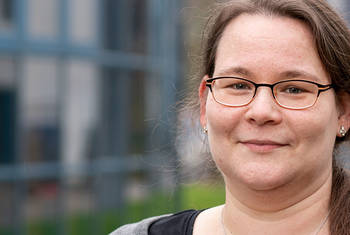Matthias Sutter How Are Economic Preferences Formed in Early Life and Adolescence?
Professor Matthias Sutter is a Director of the Max Planck Institute for Research on Collective Goods in Bonn. Holding professorships in Economics at the Universities of Cologne and Innsbruck, Sutter is also a research affiliate of the Reinhart Selten Institute (RSI) and a research fellow of the IZA. Having previously worked at the University of Gothenburg and the European University Institute, Sutter’s research focuses on experimental economics. An editor of numerous journals including Management Science and the European Economic Review and a member of the Scientific Board of the Kiel Institute for the World Economy, Sutter’s book Die Entdeckung der Geduld has been published in two editions (2014; 2018), was a bestseller in Austria and has been translated into Turkish (2017) and Mandarin Chinese (2016).
Area of Research
Experimental Economics
since 2017
Director at the Max Planck Institute for Research on Collective Goods Bonn
Max Planck Society (more details)
Max Planck Institute for Research on Collective Goods
 © Maximilian Dörrbecker
© Maximilian Dörrbecker
Max Planck Society
"The Max Planck Society is Germany's most successful research organization. Since its establishment in 1948, no fewer than 18 Nobel laureates have emerged from the ranks of its scientists, putting it on a par with the best and most prestigious research institutions worldwide. The more than 15,000 publications each year in internationally renowned scientific journals are proof of the outstanding research work conducted at Max Planck Institutes – and many of those articles are among the most-cited publications in the relevant field." (Source)
Institute
Max Planck Institute for Research on Collective Goods
"Many goods are not obviously best provided by unregulated markets. This does not necessarily imply that government does a better job. But research can do society a service in defining why markets have a hard time with some goods, and in comparing institutional arrangements aiming at their provision. In a precise way, the problem is defined by the concept of public goods. Capitalising on the theory of mechanism design, it can be further improved. Using experimental methods, it can be put into perspective. Yet some social dilemmas are better analysed in alternative categories. It may even be preferable to start analytically from the political decision to intervene into markets. The institute tackles these questions from the combined perspectives of economics, law and psychology. While the institute started with applications from environmental problems, current work focuses on antitrust, regulation and financial stability." (Source)
Map
Economic preferences that relate to time (patience), risk taking and social interaction have been shown to play an important role in life success. In this video, MATTHIAS SUTTER explores how these economic preferences are formed in early life and adolescence. Carrying out economic experiments and collecting survey data among 500 families in rural Bangladesh, Sutter finds that children adopt almost entirely the economic preferences of their parents. Sutter also shows that factors like higher income and coming from a larger household can help to form these economic preferences in a more advantageous manner. Highlighting that genetics alone cannot explain differences in economic preferences, Sutter’s work provides important information for governments seeking to intervene to improve life chances.
LT Video Publication DOI: https://doi.org/10.21036/LTPUB101050
Economic Preferences across Generations and Family Clusters: A Large-Scale Experiment in a Developing Country
- Shyamal Chowdhury, Matthias Sutter and Klaus F. Zimmermann
- Journal of Political Economy
- Published in 2022









